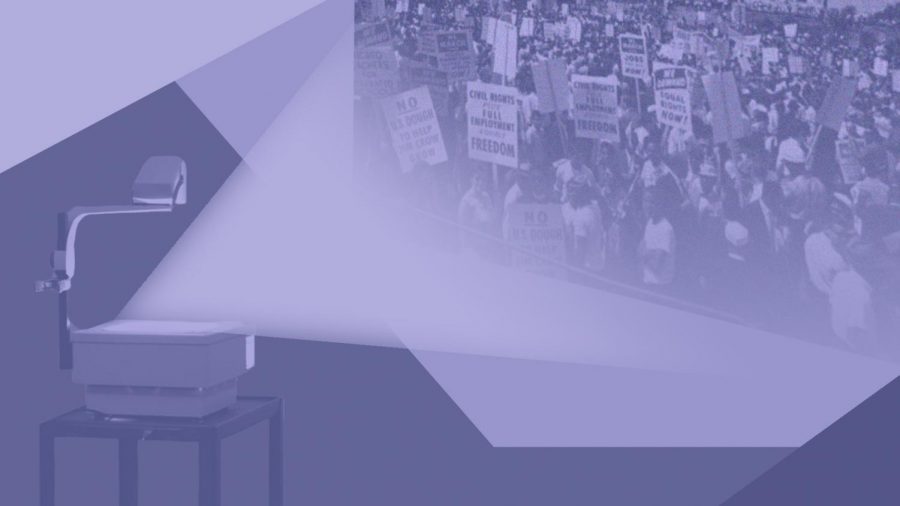Cushman: Everyone Needs Proper Civil Rights Education
(Photo Illustration by Sydney Stam | The Daily Utah Chronicle)
June 8, 2021
In 1990, Clifton Spencer became the prime suspect in the murder of Stacey Stanton and police arrested him on separate charges to keep him in custody. Spencer alleges that police repeatedly questioned him without a lawyer and even broke protocol by taking him out of the county he was arrested in. At the time, Spencer did not realize the police officers violated his rights. The next year, Spencer was given a life sentence for the murder of Stanton, despite weak evidence against him and many prosecutors doubting his guilt.
People like Spencer are taken advantage of because they do not know their rights. Of the many injustices in our legal system, this is perhaps the most egregious one. We need to make sure our education system teaches people what their rights are and how to defend those rights. Utah needs to amend its civics education to include comprehensive civil rights teachings.
Civil Rights Violations and Misconceptions
Some civil rights violations are obvious. Salt Lake City police firing 10 shots at a 13-year-old autistic boy believed not to be armed clearly exemplifies excessive force. Other violations may not be as obvious, such as when police broke protocol by taking Spencer to a separate county. Many of us are unfamiliar with the legal system, making it difficult to identify when officers violate our rights. The help of a lawyer, who knows what laws protect us, best ensures that we are protected from these violations.
In an interview with University of Utah law professor Jensie Anderson, she said that “our system is meant to be navigated by individuals with lawyers.” However, people feel hesitant to ask for an attorney because, as professor Anderson further explained, “in some instances people see that as a sign of guilt.” This situation shows that many people lack the education they need to protect themselves in our justice system.
A 2017 survey from the Annenberg Public Policy Center demonstrates that most Americans are “poorly informed” on our rights under the Constitution. 37% of a sample of 1,013 people failed to name any first amendment rights without a prompt. If many Americans cannot identify some of our most foundational rights, then they likely lack a solid understanding of concepts such as probable cause. If we’re undereducated about our rights, then civil rights violations will continue harming people.
Civil Rights and Race
Talking about civil rights without discussing race would ignore how the two have intertwined throughout our country and state’s history. As a white woman, I rarely feel fear when I’m pulled over or stopped by police, but many people of color have an entirely different experience. BIPOC communities must often fight for their rights’ protection — even now, decades after the civil rights movement.
For example, in 2011, Utah passed House Bill 497, which inadvertently invited racial profiling by authorizing officers to investigate the immigration status and look over the identification documents of anyone they stop and allowing said officers to reject acceptable forms of identification on the basis of “reasonable suspicion” that the documents are false.
Fortunately, the law underwent revisions in 2014 after backlash from Utah civil rights groups. Even though the situation ended in victory, it still demonstrates how the civil rights of BIPOC communities are still at risk in our state. Knowing that many people do not understand their rights, we need to work harder to guarantee that we equally protect everyone, regardless of race.
Amending Our Civics Education
Everyone knows that we have the right to remain silent because we have heard that line hundreds of times on TV. The same cannot be said for many of our other rights. Our state can remedy this by reforming our civics education to teach us more about our civil rights.
Utah’s civics education currently focuses on how our government works and the basics of early American history. The civics test that every Utah high schooler needs to pass asks students how many senators are in Congress, the roles of each branch of government and who authored the Federalist Papers. That information allows students to become responsible citizens, but it’s not enough.
We need to teach our students about the intersection between civil rights and race. We also need to teach them about practical civics information, such as when police are authorized to use force, what probable cause means and the importance of having a lawyer present.
Our education should address common misconceptions so that people feel comfortable taking advantage of their rights. By expanding our civics education to include civil rights teaching, we give our students the tools they need to defend themselves in a complicated and scary justice system.









